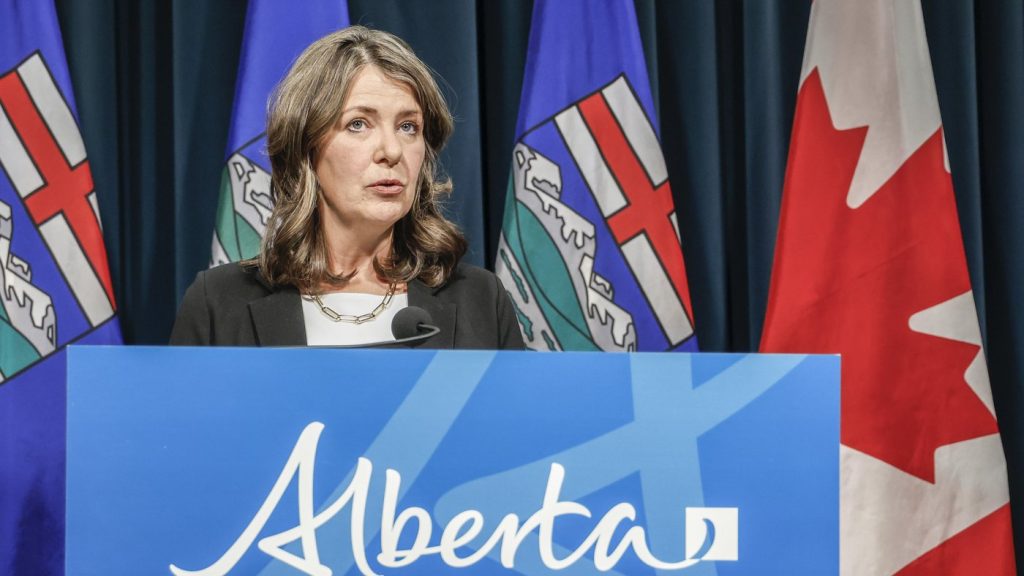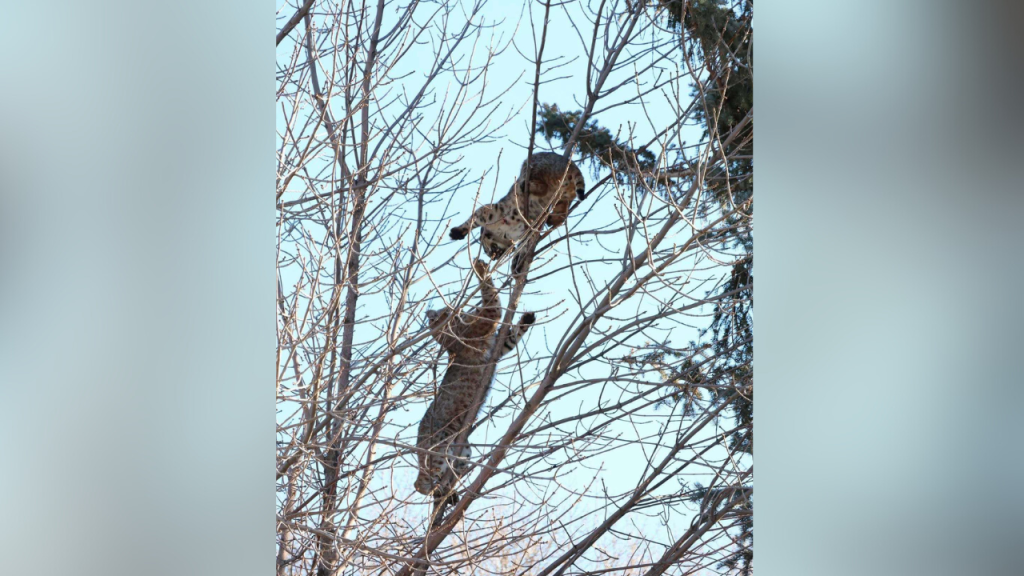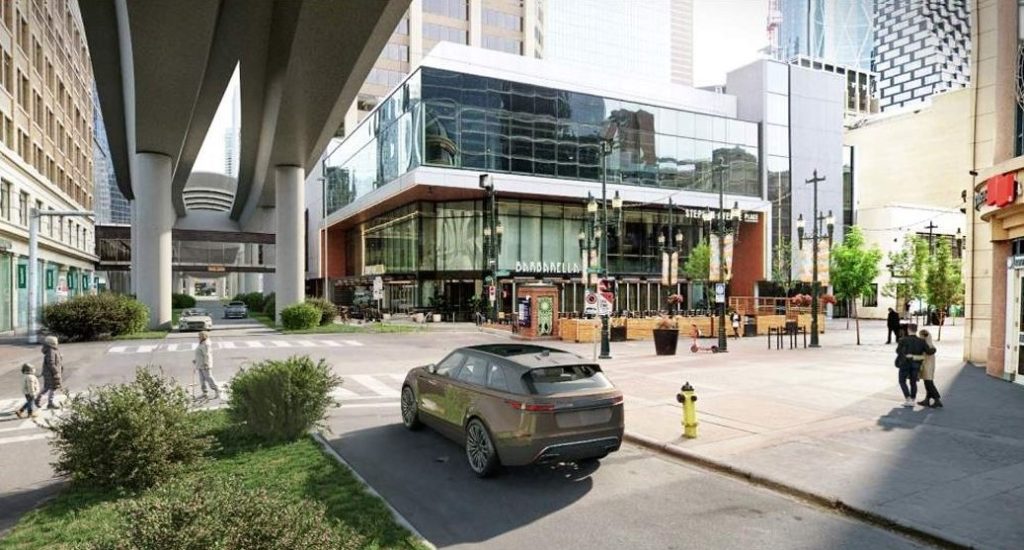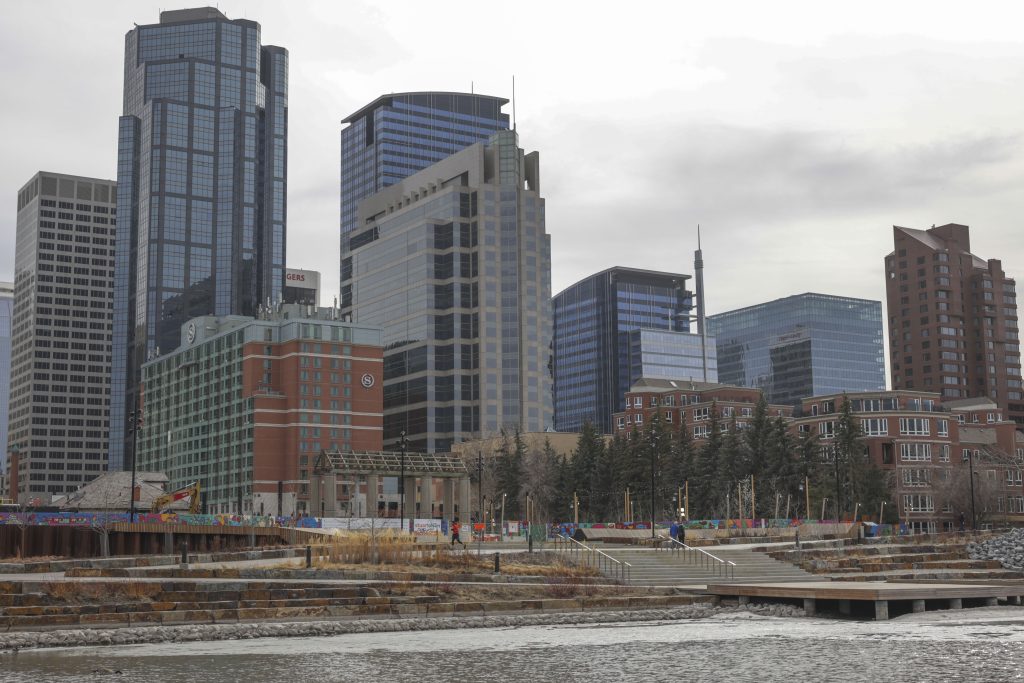Alberta earmarks $180M for two involuntary addiction treatment centres

Posted Feb 24, 2025 2:14 pm.
Last Updated Feb 24, 2025 5:45 pm.
The Alberta government plans to spend $180 million to build two drug addiction treatment centres as it continues the push for involuntary addictions treatment, saying there are plans to build more facilities down the road.
Promised in 2023, the proposed “compassionate intervention act” would allow a family member, doctor or police officer to request a mandatory treatment order from a judge if someone is deemed a danger to themselves or others.
The two new treatment centres are to be located in Calgary and Edmonton and would have 150 beds each. Premier Danielle Smith says construction could start next year and the centres would be operational in 2029.
“There is no compassion in leaving people to suffer in the throes of addiction,” Smith said. “We will not sacrifice our communities or give up on those suffering from addiction.”
The province says the two facilities will aid in decreasing the number of lives lost to addiction. Patients will have access to a variety of mental health and addiction support, as well as intake assessments, medically-supported detox, counselling, and individual and group therapy.
Smith wrote in her August 2023 mandate letter to Minister of Mental Health and Addiction, Dan Williams, she expected him to “[work] collaboratively with community and government partners to develop compassionate intervention legislation, supporting facilities and legal processes to save the lives of those that are a danger to themselves or others” and “[build] and [operationalize] at least 11 new recovery communities in key locations throughout the province, working collaboratively with the Ministries of Infrastructure, First Nations, and Metis communities.”
Under the upcoming law, the government says a person would have to meet specific criteria to be eligible for compassionate intervention assessment and treatment.
Furthermore, decisions would be made by an independent commission made up of lawyers, doctors, and members of the public, which could include Indigenous elders.
The province says the strategy uses evidence-based models adopted from other jurisdictions and tailors them to the needs of Albertans.
It claims the Alberta Recovery Model, under which this policy would reside, has already made significant progress in the province’s drug crisis. According to the government, Alberta saw a 39 per cent decrease in the number of deaths connected to opioid addiction over the first 10 months of 2024 compared with the same period in 2023.
Dubbed involuntary drug treatment by some, the legislation to allow family members, guardians, health care professionals, police or peace officers to force people with substance abuse issues into addictions treatment has been on the agenda for the UCP for some time.
Critics of this type of treatment have previously said a law of this nature would be a violation of human rights.
“You can not just kidnap people who aren’t doing anything against the law,” Calgary Indigenous organization, Bear Clan Patrol, said in an April 2023 statement. “Most people become addicted through their own medications provided to them by their doctors.”
“If the UCP is genuinely interested in opioid addiction, they can pass legislation that forces doctors to fix the root causes instead of masking symptoms.”
Janet Eremenko, the Opposition NDP’s mental health and addiction critic, said no construction contracts should be issued given recent allegations of government corruption in medical contracts made by the former head of AHS.
“This government cannot be trusted to dole out either capital or operating contracts to private providers under the shadow of these serious corruption allegations,” Eremenko said.
Albertans struggling with opioid addiction can contact the Virtual Opioid Dependency Program (VODP) by calling 1-844-383-7688, seven days a week, from 6 a.m. to midnight daily. VODP provides same-day access to addiction medicine specialists. There is no waitlist.
Residents can also call 211 Alberta for information on services and supports in their community.
With files from The Canadian Press








